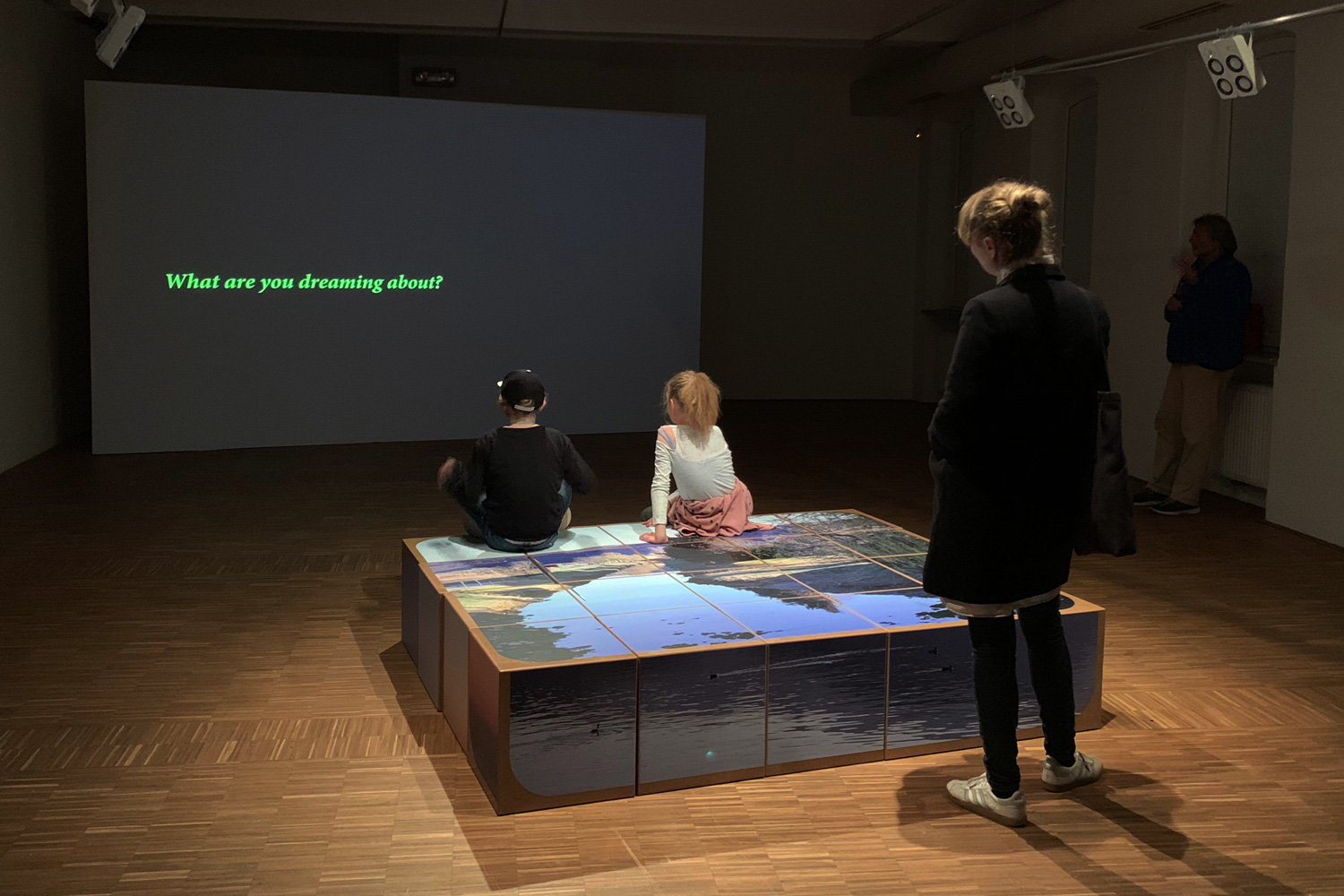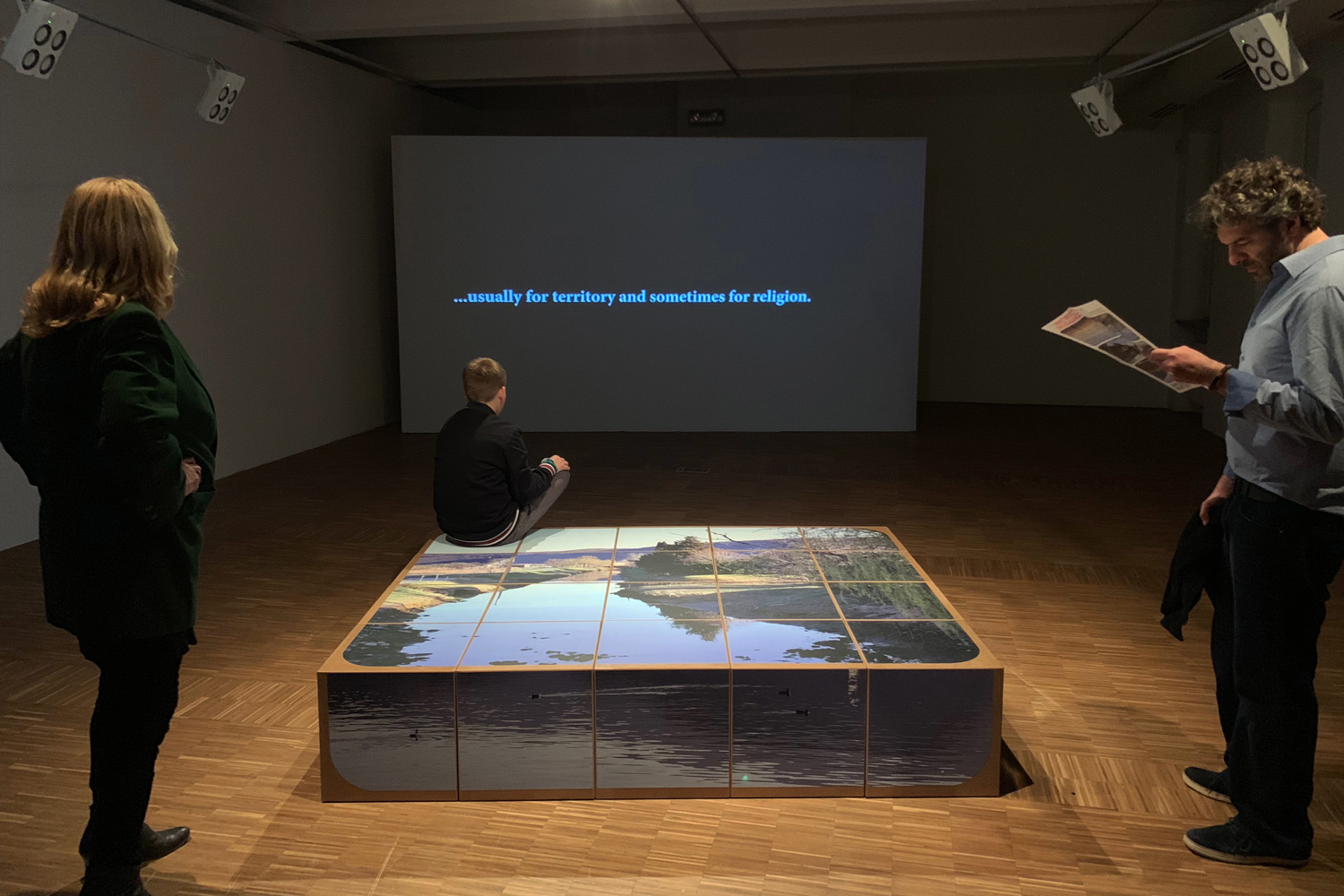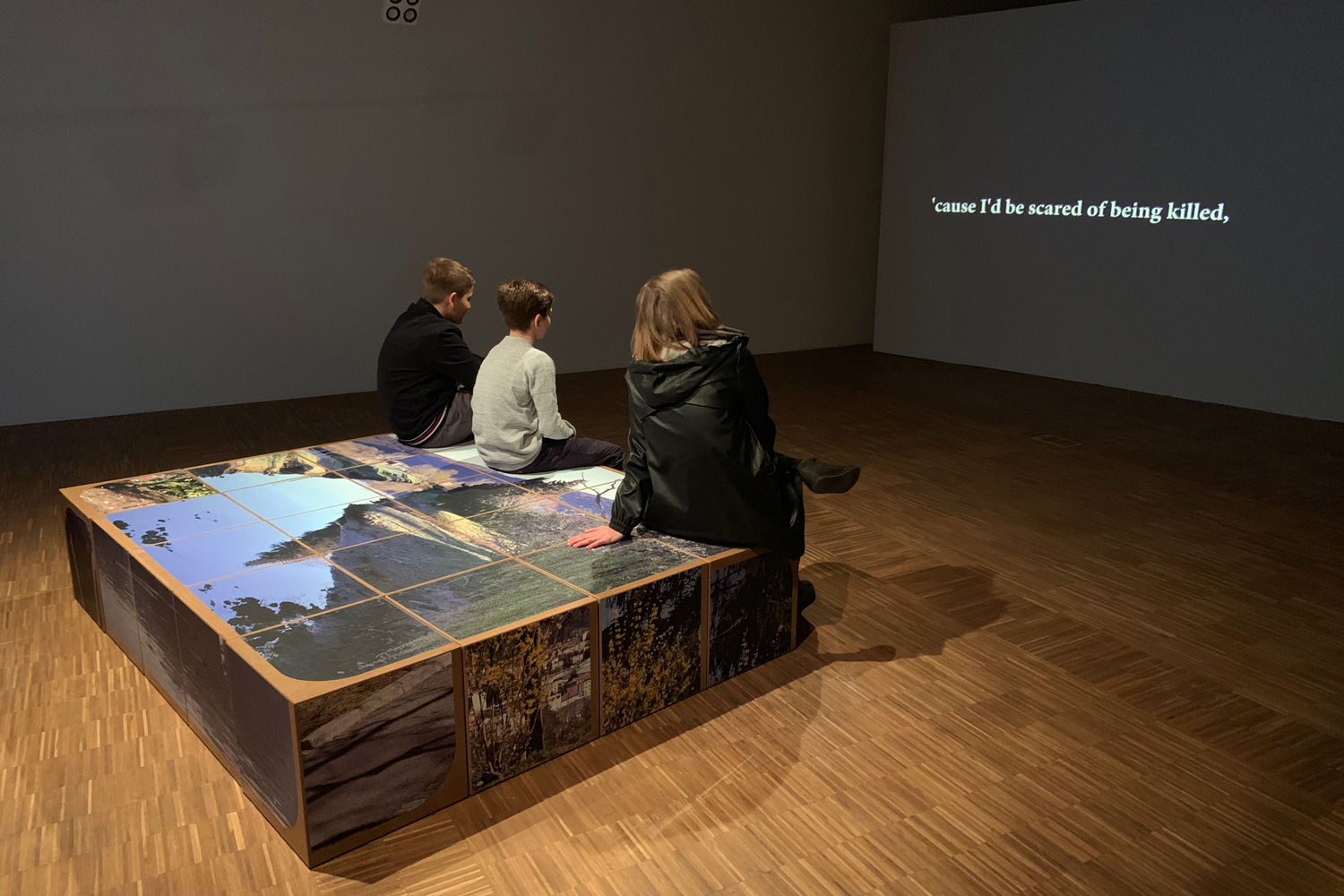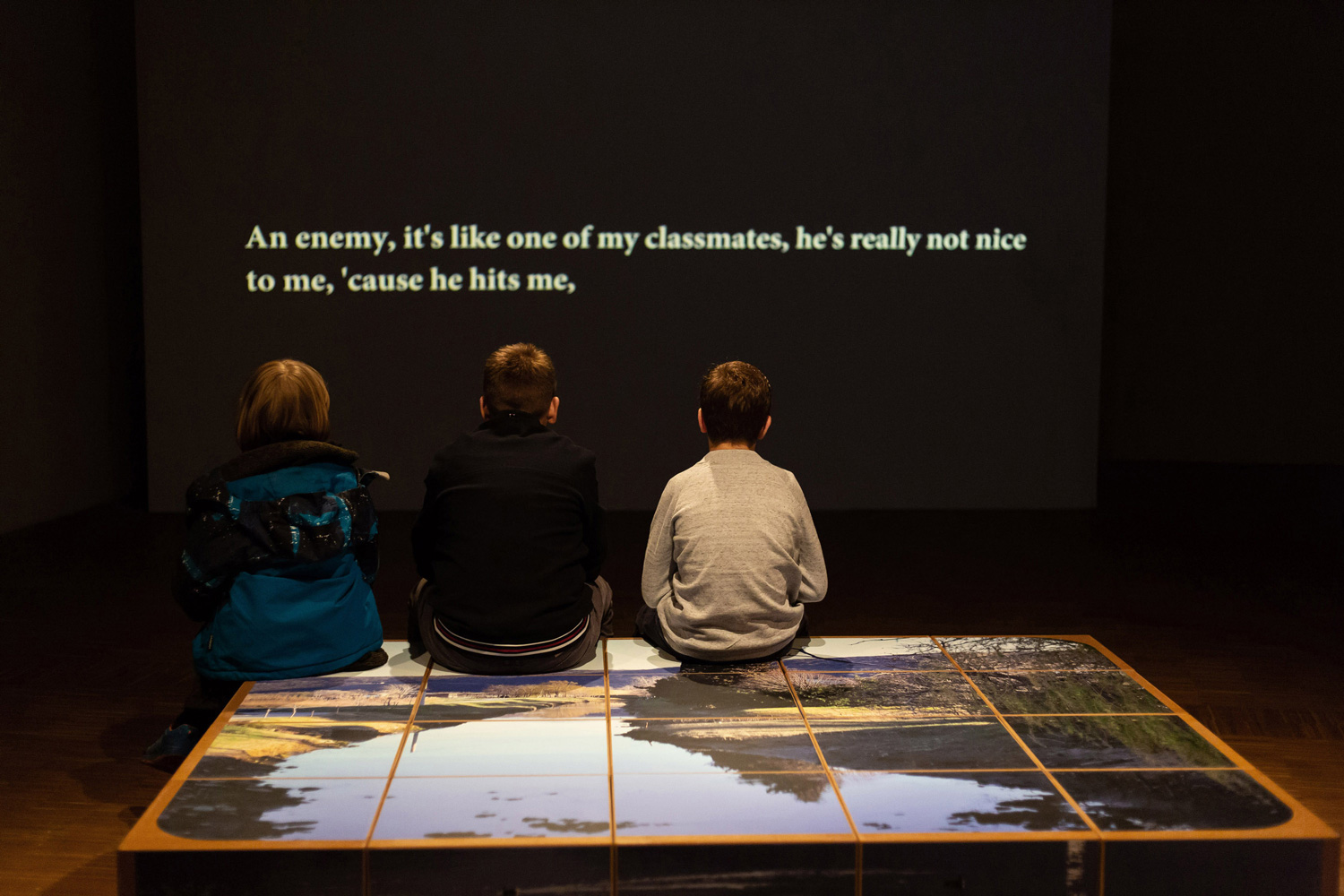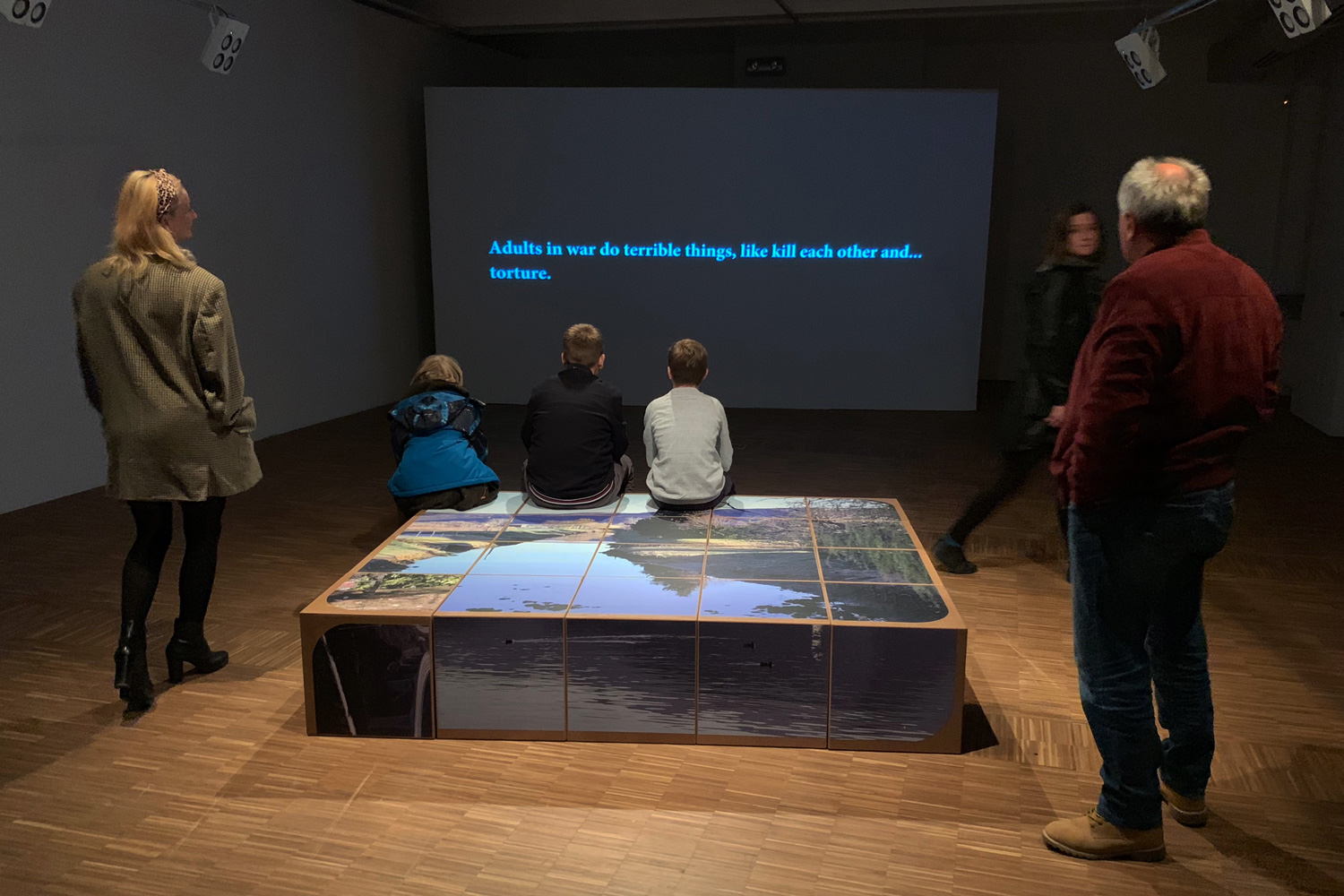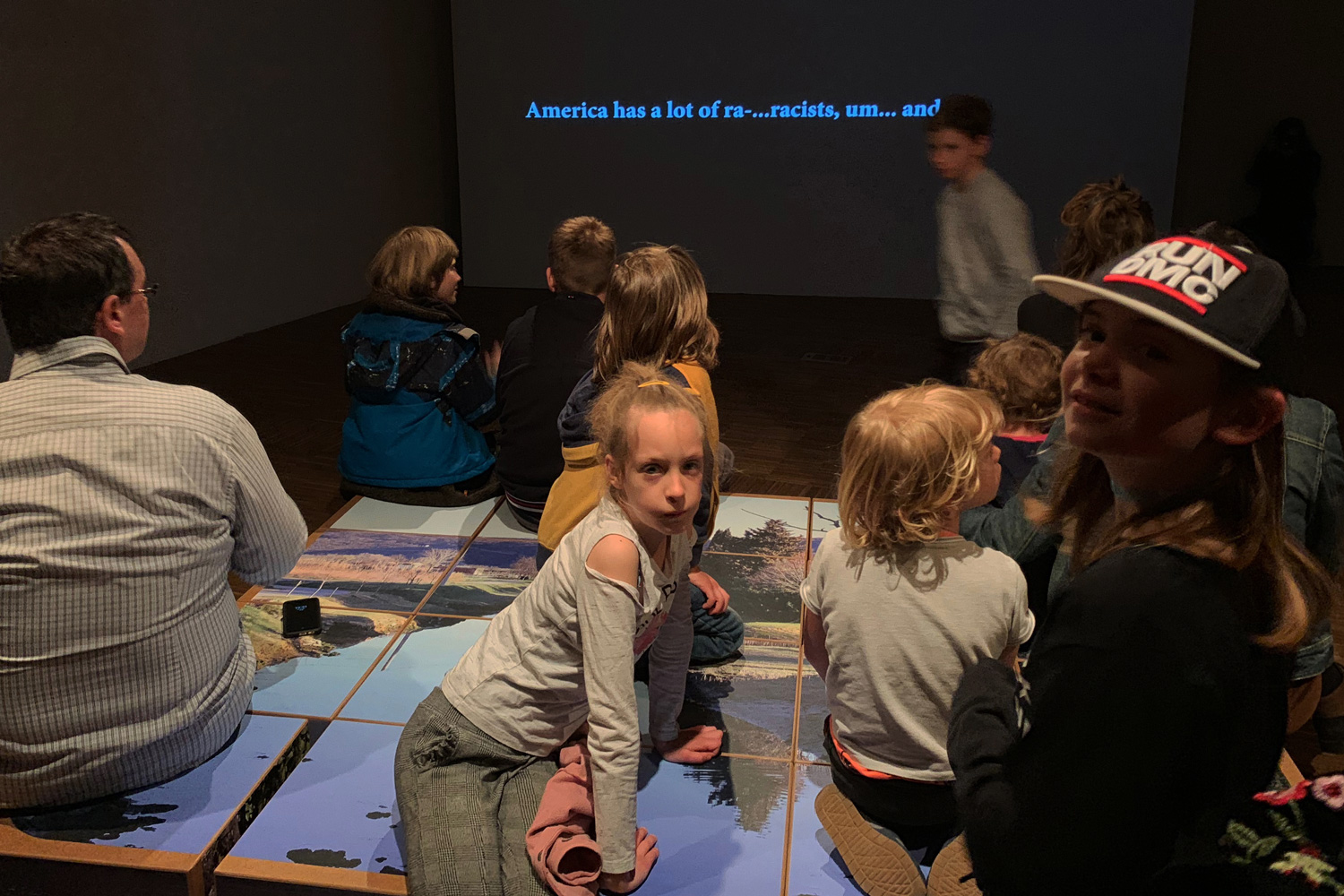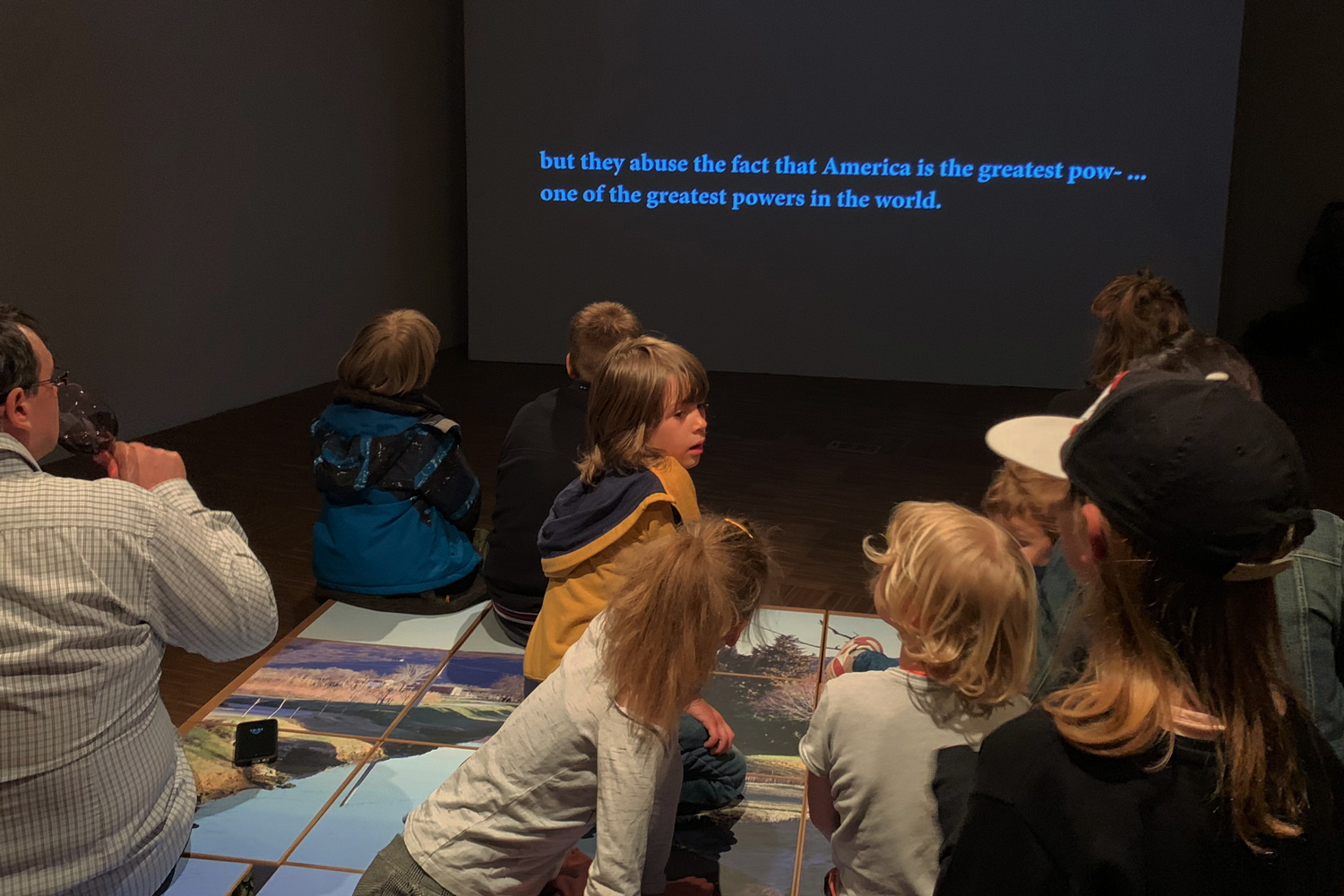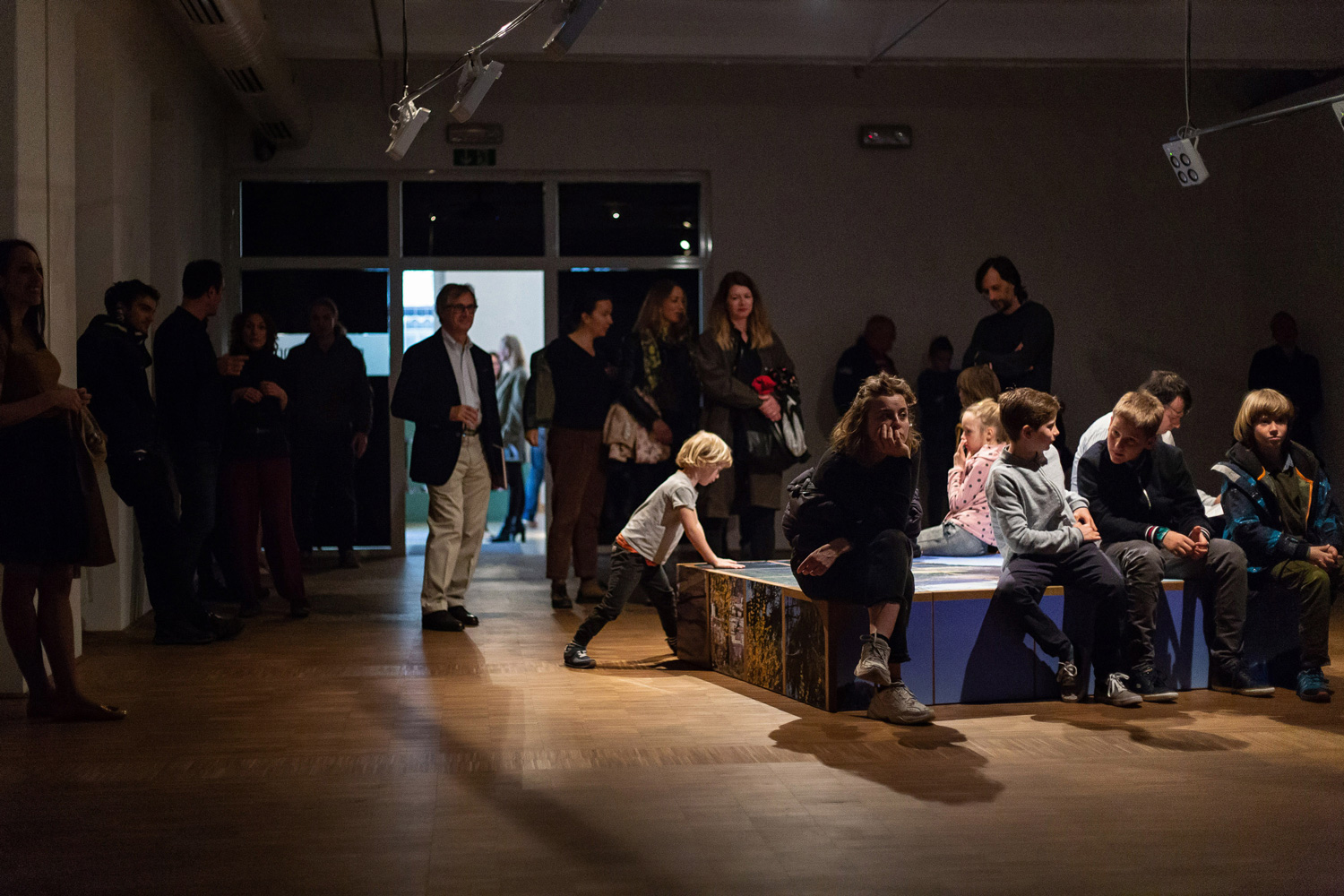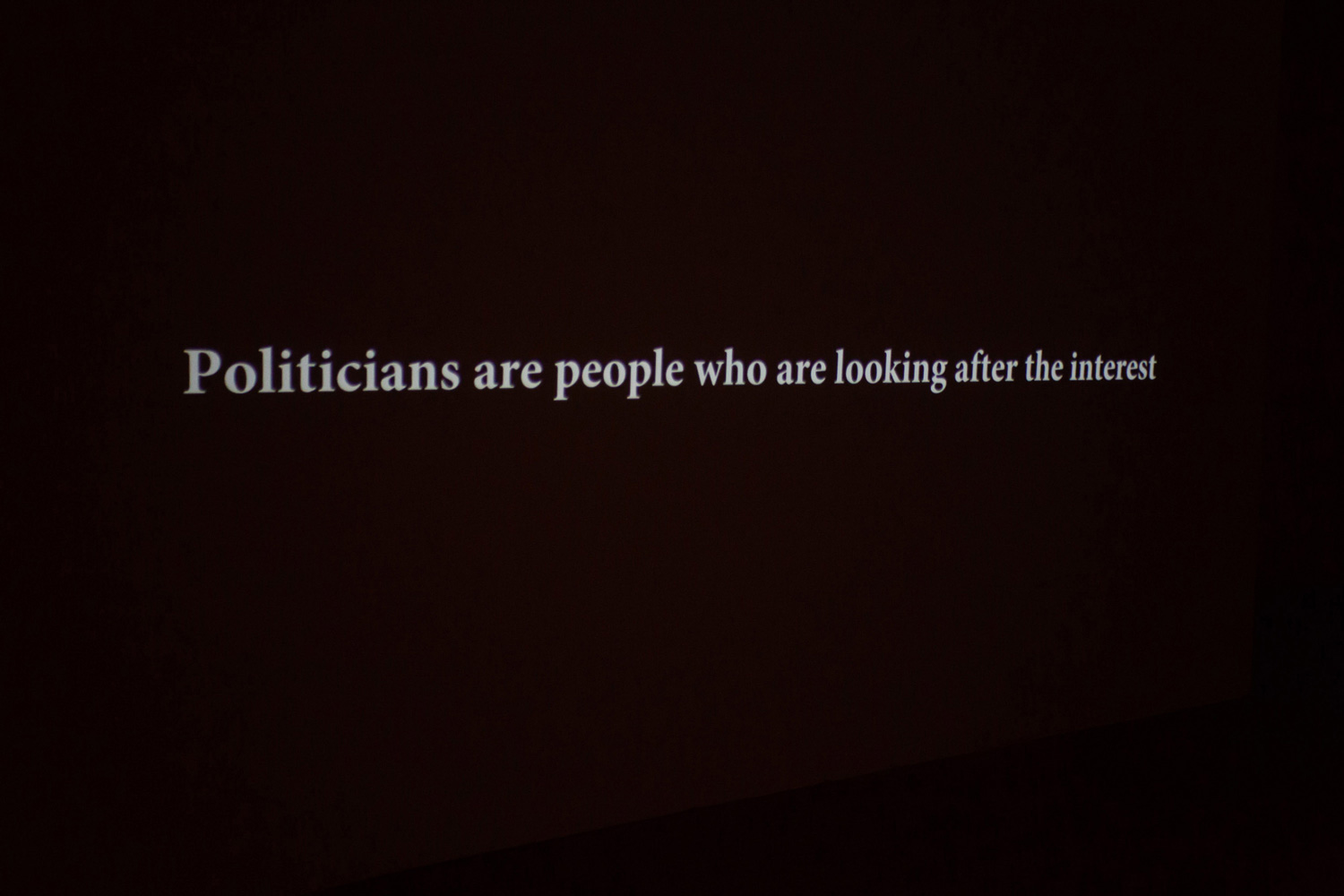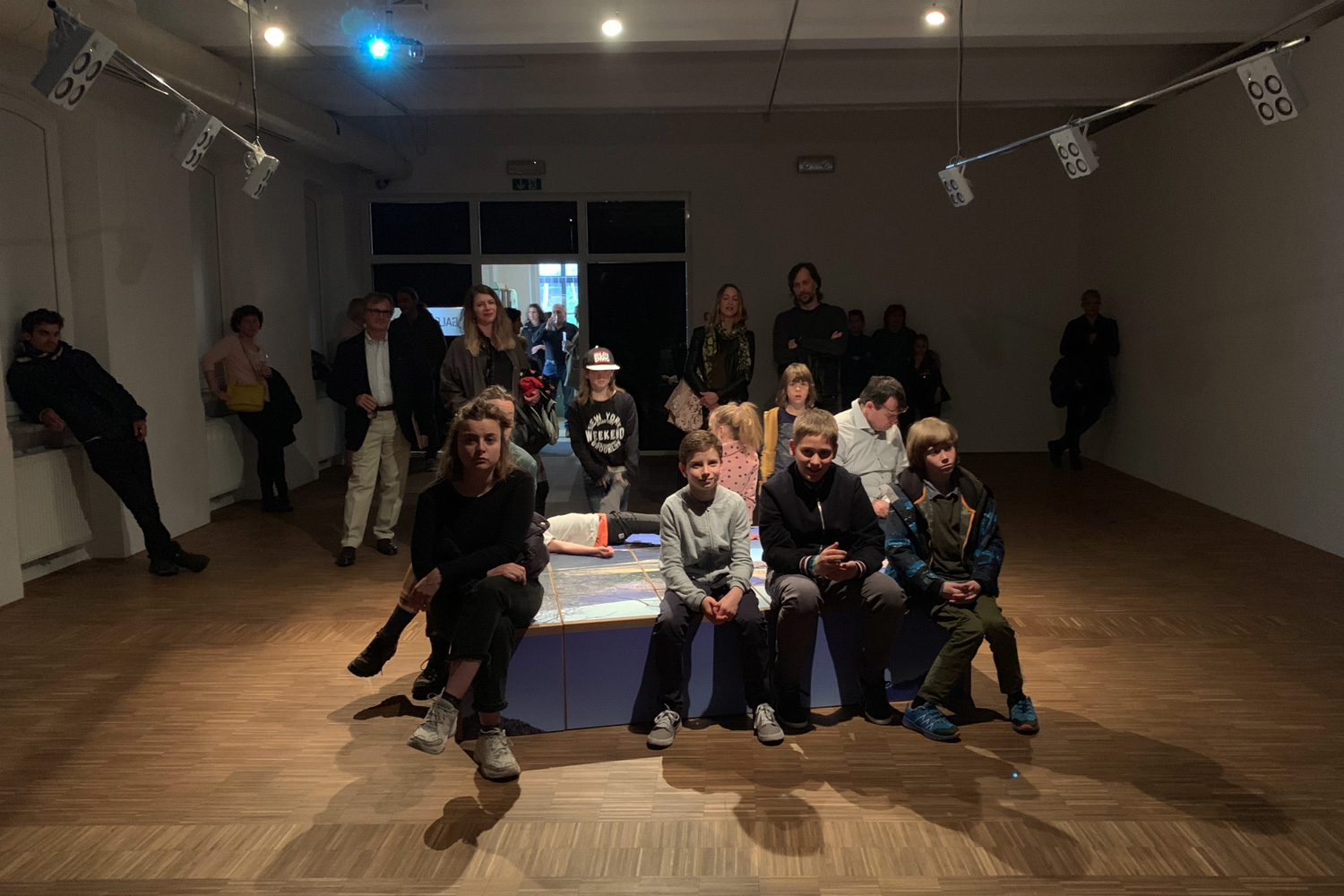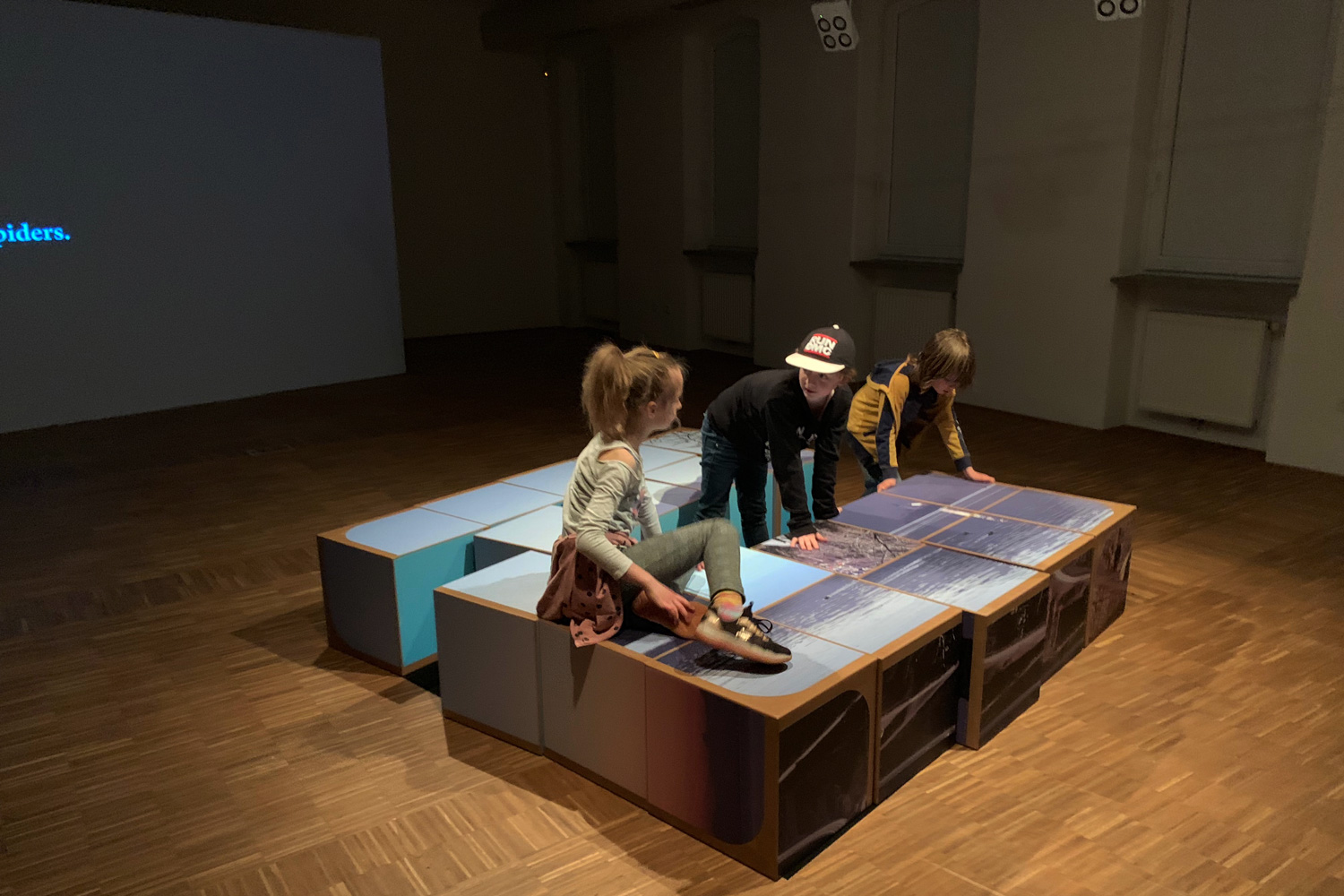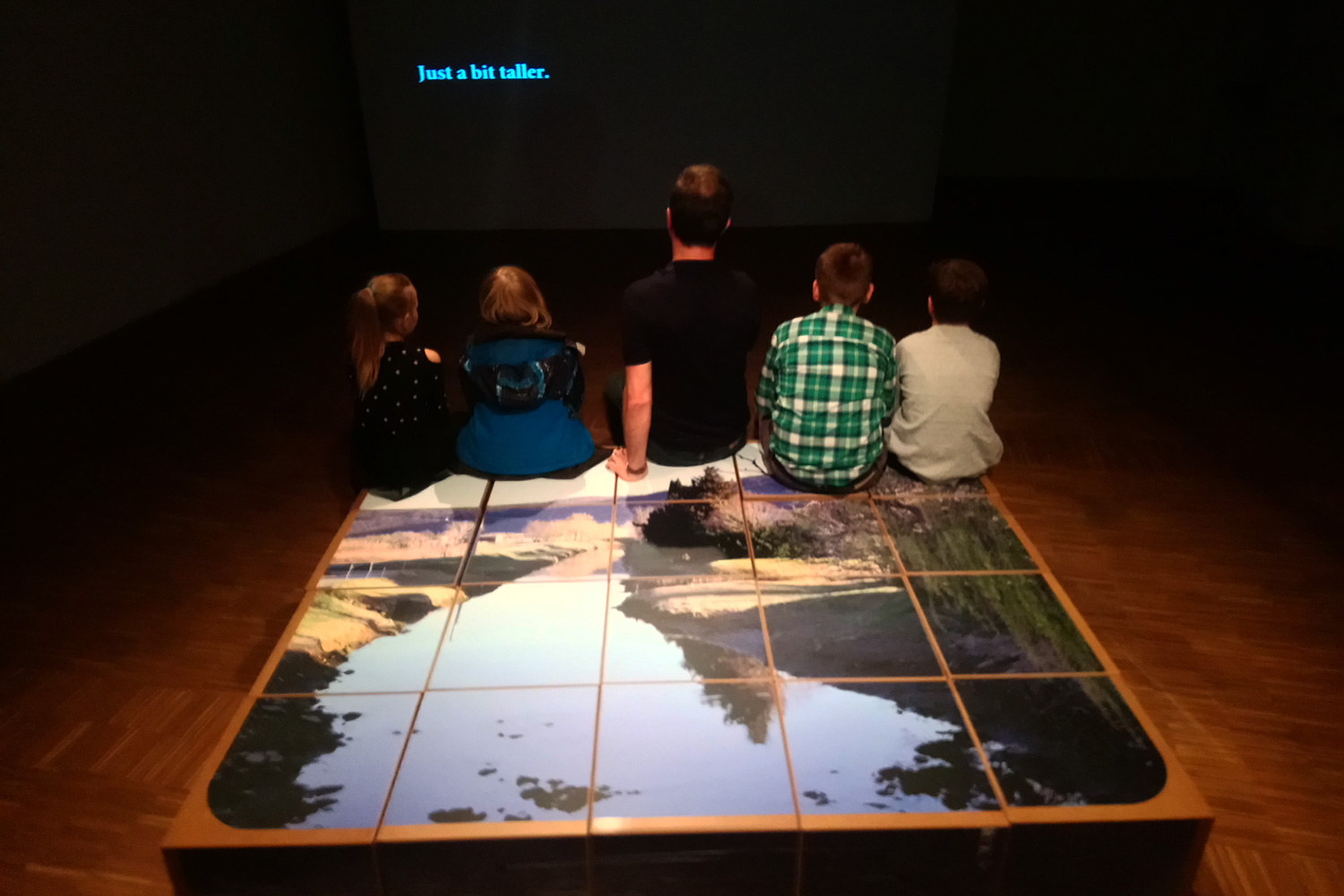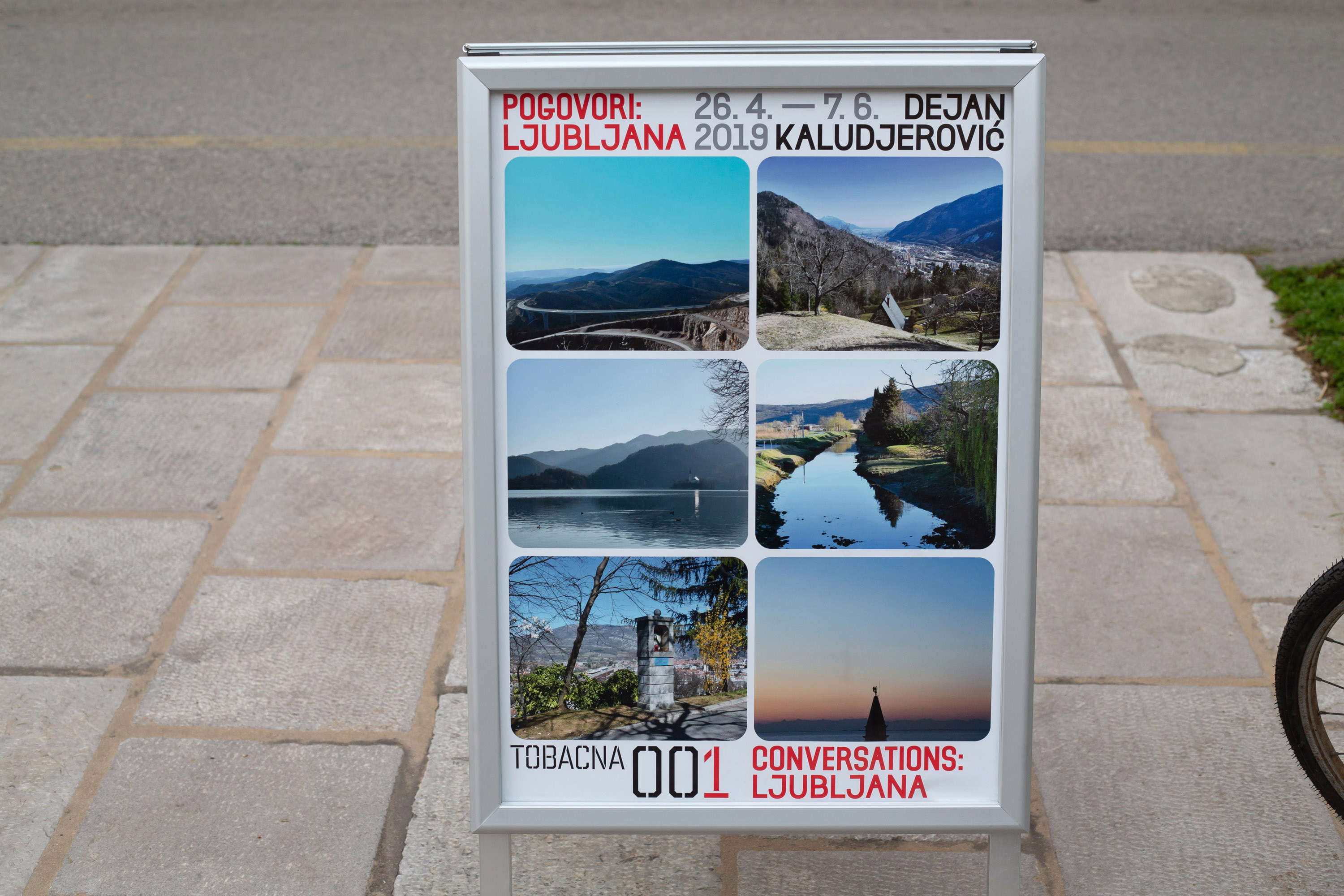Conversations: Ljubljana, Tobačna 001. Ljubljana (2019)
27 April 2019 – 14 June 2019
Dejan Kaludjerović, Conversations: Ljubljana, Tobačna 001, Ljubljana
“I think that we are, that most Slovenians are very humble, um, that we’re nice, that we know how to take care of the environment, most of us do.” (Alina, 10 years old)
Growing up is political; we are conditioned ideologically and affectively by the social communities that surround us. Referring to this, Dejan Kaludjerović’s art project Conversations: Hula-Hoops, Elastics, Marbles and Sand (2013–present) reminds us of the fact that childhood is not spared from political reality and political thought however much this period of life, often referred to as the age of innocence, may be devoid of social responsibility for the things that happen and will continue to happen in the future.
The playground as the basic setting of the exhibition is presented as the place where innocence, ingenuity and imagination blur those safe zones within which the banality of evil vis-à-vis society, that is, vis-à-vis the other, is for the first time manifested in each individual childhood.
With this new edition of Conversations: Puzzle Cubes made in Slovenia, Kaludjerović exposes political landscapes framed by images of Slovenian natural treasures through which symptomatic details of an oppressive politics no longer remain hidden. Observing beautiful landscapes, which always been connected to Slovenian national pride and identity, there are visible and invisible borders shaped by local knowledge, media footages, EU economy, public speaking and political stages. Such visual narratives touch upon neuralgic points of Slovenian society and its divisions, whether material (marked by barbwire fences and corruption) or ideological (generated through hegemonic class, religion, gender and/or nationalist diversifications). Beautiful photo-prints of nature around Dragonja, Piran, Gorica, Črni Kal, Bled and Jesenice stuck to puzzle cubes “playfully” trigger political consciousness not only about the inhumane barbwire borders and unbearable human lives affected by them, but also about the fact that it is our glocal neoliberal world that produces the deeply entrenched state of permanent war and its perpetually conflicting identities.
Alongside these political landscapes, children’s (stereo)typical black-and-white representations of this state of affairs paradoxically indicate the complex politics of hegemonic distribution of social, political and economic power. Remaining ethically untouchable and socially unbreakable these children’s observations appear as normative or generally accepted commonplaces of patriarchy, capitalism and racism, not only in Slovenia, but also all over the world. What makes Kaludjerović’s Conversations horrifying is not the series of these children’s answers, containing variations of the absorbed social narratives in-between hegemonic and subaltern worlds, but rather the inability to imagine a possible future beyond such oppressive politics that have occupied landscapes that belong to all.
Production: Museum and Galleries of Ljubljana Exhibition curator: Andreja Trebušak Artist: Dejan Kaludjerović Text: Jelena Petrović Design: Ajdin Bašić Realisation of the exibition: Technical Service MGML The exhibition was made possible by: City of Ljubljana, Austrian Cultural Forum, Ljubljana, Wien Kultur
Thanks to: all the children participating in the project and their parents, Igor Gombač, Petja Grafenauer, Alenka Gregorič, Anja Guid, Miha Heber, Jelena Kaludjerović, Gojmir Nabergoj, Ivan Pavlović, Aljoša Peršin, Jelena Petrović, Milica Petrović, Jernej Pribošič, Dragana Radojević, Mateja Starič, Aleksandar Srdić, Irena Šimenc Mihalič, Alenka Trebušak



